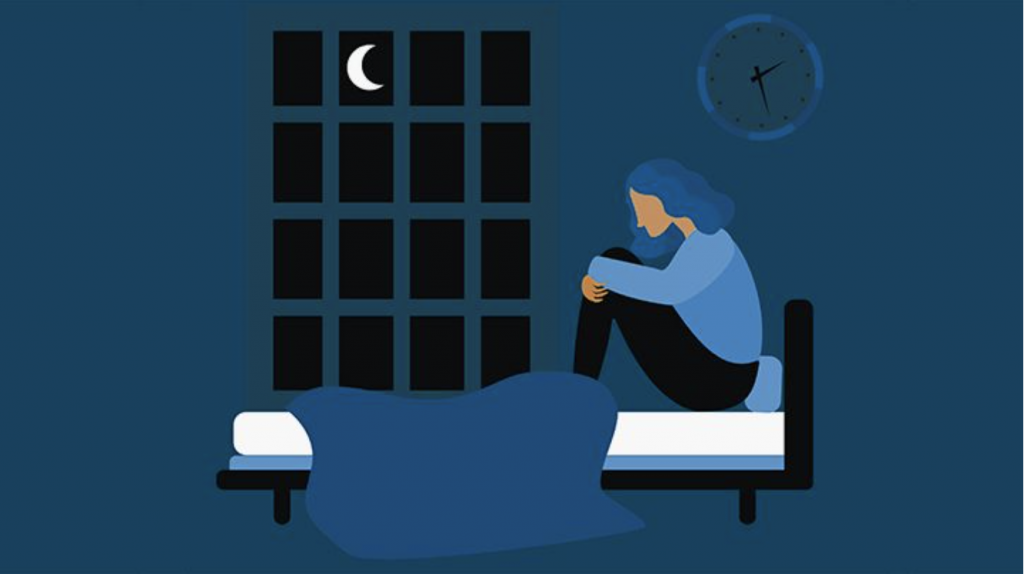
School, work, phones, parties, being an adolescent makes it easy for one to forget the importance of getting sleep. We become absorbed in stress or excitement and consequently, sleep is the price for it. However, sleep is crucial for everyone, especially teens. It’s important to realize that finding a balance between all-nighters and a night of rest is crucial for us. Here’s why:
1.) Lack of sleep negatively impacts your mental health- I know for sure that when I don’t sleep properly, I can’t cope with stress effectively and I am so easily irritated. Lack of sleep lessens the brain’s ability to regulate your emotions and ability to respond to stress. As a result, you can experience increased symptoms of anxiety and depression if you have it already or potentially develop them along with other disorders.
2.) Decreased productivity. Lack of sleep can lessen you ability to remember or memorize things. This is because short-term memories are formed while you are asleep. If you don’t get enough sleep, the memory is unable to be properly processed, making you more forgetful. You’re also less likely to able to focus which also interferes with your ability to remember and memorize things. As a result, you may find it hard to complete everything you need to do.
3.) Reduced physical activity- When you don’t get enough sleep, you are less likely to get to exercise or even move much at all. This can lead to negative consequences such as a higher risk of weight gain and many diseases. Of you do work out when sleep deprived, you are less likely to perform as well as you are rested or cause further fatigue.
4.) As teens and young adults, most of us are still in development and the lack of proper sleep can hinder developments such as growth and can increase the risk of developing physical and mental conditions.
Some Things You Can Do To Try To Get More Sleep
Do not sleep with your phone in your room so you’re not tempted to look at it. Doing so will also decrease your exposure to the light from your phone that tends to alter your sleep cycle be reducing the release of melatonin.
Meditate before falling asleep– Here’s my favourite one. Relax every muscle in your body one by one and envision you body feeling warm. Create a happy/calming scenario. Breath in deeply and slowly. Also, tell yourself that this is still considered as rest even though you’re still awake. This helps me a ton when I’m really anxious and need to sleep. Sometimes I fall asleep before I even finish.
Have an out-wind time prior to heading to bed so that your body feels calm and relaxed when you head to sleep. You can take a shower, have a cup of tea, or just sit and listen to music as a form of out-winding.
Write a to-do list for the next day so you’re not kept all night worrying about what you did and didn’t do.
Go to bed earlier if possible to maximize how much sleep you can get.
Calming scents such as mint or lavender can also help you feel relaxed and help you fall asleep too!
Lastly, do not over focus on trying to fall asleep. That will only make you feel more stressed and pressured to fall asleep, keeping you awake longer instead.
Note: The Free Your Mind Mental Health Society is an independent youth-led organization. The contents of this blog are not intended to be a substitute for professional medical advice, diagnosis, or treatment. Always seek the advice of your physician or another qualified health provider with any questions you may have regarding a medical condition. In the event of a medical emergency, please call your doctor or 911 or other local emergency numbers immediately.
Sources
Brandon Peters, M. (n.d.). The Critical Effects of Sleep Deprivation on Your Body and Health. Retrieved December 29, 2020, from https://www.verywellhealth.com/what-are-the-physical-effects-of-sleep-deprivation-3015079
Peri, C. (2013, April 30). Sleepiness: Cognitive and Emotional Effects. Retrieved December 29, 2020, from https://www.webmd.com/sleep-disorders/features/emotions-cognitive
Publishing, H. (n.d.). Sleep and mental health. Retrieved December 29, 2020, from https://www.health.harvard.edu/newsletter_article/sleep-and-mental-health
Yuen, C. (2020, May 12). How to Fall Asleep in 10, 60, or 120 Seconds. Retrieved December 29, 2020, from https://www.healthline.com/health/healthy-sleep/fall-asleep-fast

